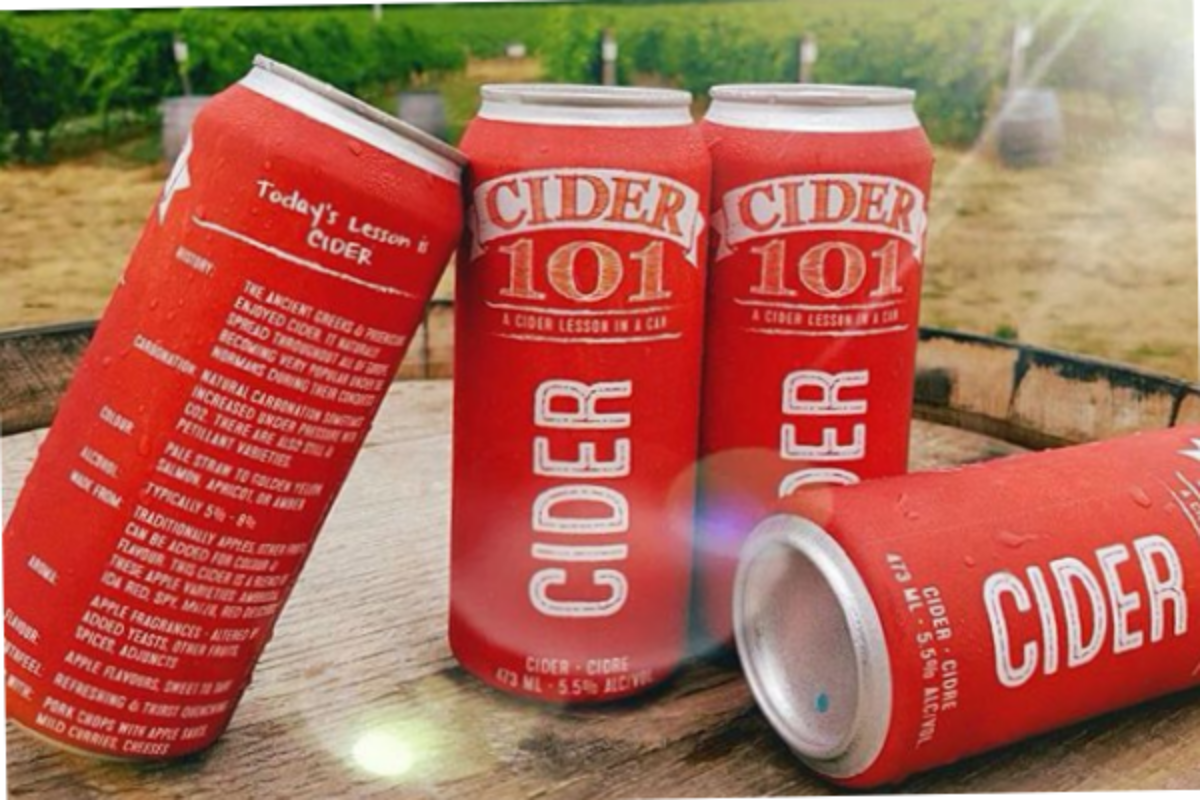
Niagara College’s ‘Cider House’ took home two new medals and a spot on this year’s Top 10 Cideries list at the U.S. Open Cider Championship. 2021 marked the eighth year for the U.S. Open Cider Championship, which drew more than 270 entries representing 25 different cider styles and four kombucha styles from cideries, wineries and brewers.
Niagara was the only college and the only Canadian cider producer to be ranked among the competition’s coveted Top 10 Cideries for 2021, where it was listed as tied for ninth place.
Its popular, multiple-award-winning Cider 101 earned a new gold medal (Modern Cider – Dry category), while a more recent small batch product, Les Marmitons Gastronomy Cider, won a silver (Fruit and Berry Cider category).
“At Canada’s first commercial Teaching Winery, we are proud to continue building on our reputation as a leader in wine and craft cider production;” said Steve Gill, general manager of NC’s Learning Enterprises – which includes the College’s on-campus Teaching Winery, Teaching Brewery and Teaching Distillery. “Above all, these latest international awards are a tremendous win for our students, who gain hands-on experience producing high-quality products – recognized among the best in the world – and are poised to take the industry to the next level.”
This will be the fourth gold medal NC has won at the U.S. Open Cider Championship for its original and flagship cider, Cider 101, since it debuted at the Teaching Winery in 2015.
College winemaker, instructor and alumnus Gavin Robertson (Winery and Viticulture Technician, 2011) noted that while the apples inevitably change year to year with different weather and growing conditions, they strive to maintain a consistent taste profile and quality by working with the blend from batch to batch.

“Cider 101 is designed to be easy-drinking and approachable and is made to simply let delicious Ontario apples shine through,” he said. “Because we are making Cider 101 year-round, as opposed to the grape harvest which only happens once a year during the fall, our students have lots of opportunities to observe and participate in juice handling, fermentations and packaging of this product throughout their program of study.”
Les Marmitons Gastronomy Cider is a newer and unique small batch cider from the Teaching Winery. It was made for a local chapter of the food and wine society with the same name to stand up to substantial dishes at the table. Members of Les Marmitons Niagara had input into the final blend.
“We have had a long-term relationship with Niagara College, holding monthly cooking events in their culinary kitchen facilities since our inception in 2005. Our support has included a scholarship and bursary fund, as well as the creation of Gastronomy wines and ciders,” said Mike Berlis, president, Les Marmitons Niagara. “We have thoroughly enjoyed working with winemaker Gavin Robertson in building up an award-winning portfolio, and we are very proud of the most recent award given to the Gastronomy Cider.”
To create Les Marmitons Gastronomy Cider, Robertson said they worked with an apple blend that prioritized body, structure and alcohol content for richness, co-fermented some carbonic maceration Cabernet Sauvignon clusters and Ontario cranberry juice, then back sweetened the final product with late harvested Cabernet Sauvignon juice to balance it out.
“This cider could stand in place of a well-structured rosé and has lots of flavour complexity which makes it intriguing on its own and fun to pair with food,” he said.
Robertson noted that a key component of the blend was the carbonic maceration of the Cabernet Sauvignon, which was made experimentally with students during the Teaching Winery’s 2020 harvest. They used a winemaking technique whereby fully ripe clusters were placed in a sealed drum and pumped full of carbon dioxide regularly. The macerated fruit was blended into an apple cider base and allowed to finish a normal yeast-induced fermentation.
“The dry cider was great but needed just a touch of sweetness to balance acid and tannin components, so we used some second-press Cab Sauv Icewine juice leftover from student winemaking projects after the 2020 Icewine harvest,” he said.
